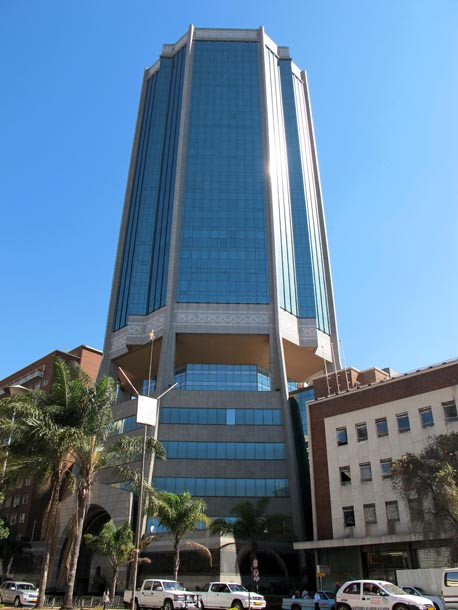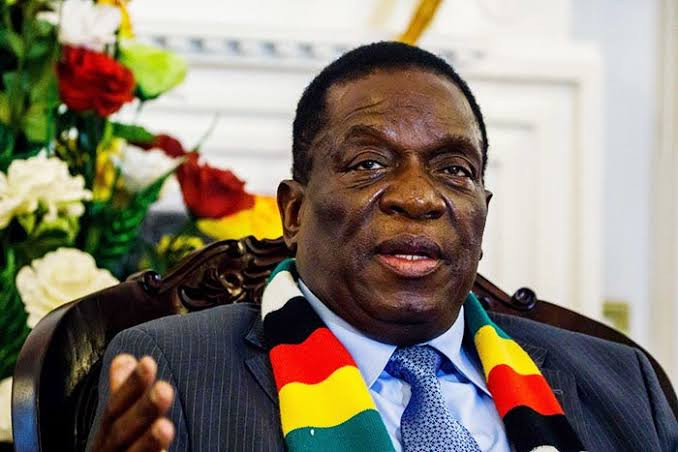
ZIMBABWE has become a breeding ground for a raft of criminal activities, such as illicit trade in gold and precious metals, fraud, corruption and tax evasion, that have left the country vulnerable to money laundering, among other ills, the latest report by the central bank has shown.
The proceeds of such crimes could be funneled towards funding terrorist activities, the Reserve Bank of Zimbabwe (RBZ) has warned.
“Illegal dealing in gold was noted to have been occurring in the informal sector where some unregistered buyers were buying gold direct from artisanal miners in the absence of adequate measures to identify the buyers and to verify their source of funds,” the report reads in part.
“The law enforcement agents have enhanced security around the illegal mining geographies to curb the illegal activities.”
Zimbabwe Miners Federation president Henrietta Rushwaya was arrested in 2020 at Robert Gabriel Mugabe International Airport in Harare with 6kg of gold in her bag as she checked in for a flight to Dubai.
Police said the gold was valued at around US$366 000. The matter is still before the courts.
Qatar-based TV channel, Al Jazeera’s Gold Mafia investigation exposed a money laundering network in which gold smuggling gangs in Southern Africa share links with top officials in the Zimbabwe government.
In the documentary titled Gold Mafia, Zimbabwe featured prominently after President Emmerson Mnangagwa’s ambassador-at-large Uebert Angel, born Uebert Mudzanire, was secretly recorded offering to help undercover Al Jazeera journalists to launder US$1,2 billion in dirty money.
- New perspectives: Combating money laundering in real estate
- New perspectives: How Zimbabwe can effectively fight money laundering
- New perspectives: Combating money laundering and terrorist financing
- Govt, CSOs start dialogue on PVO Bill
Keep Reading
The central bank report also pointed out that smuggling was noted to be perpetrated through borders with neighbouring countries. Items smuggled range from clothing, food stuff, electrical gadgets, tobacco and precious minerals.
“This generates proceeds which are susceptible to money laundering and terrorist financing. The relevant authorities have enhanced security around the border posts to curb the malpractices,” it said.
The central bank said corruption cases have been on the increase in the country. The main forms of corruption were noted to be abuse of office, procurement malpractices and bribery. These generated proceeds that were used by criminals to purchase assets as a way of hiding the true origin of the funds, it said.
Another form of crime on the increase is fraud. The apex bank said fraud cases involve card fraud and embezzlement. The law enforcement agents have made several arrests and recovered proceeds of crime, it said.
“The prevalence of informal businesses with minimum or no accounting records has resulted in revenue leakages. Some formal businesses are also evading paying tax and re-externalising profits offshore. These illicit proceeds have a potential to be used for money laundering and terrorist financing,” the report said.
It also said trading of foreign currency outside formal financial channels continued to be a significant risk to financial stability during the year 2022.
Over the course of 2022, according to the RBZ, the Financial Intelligence Unit (FIU) increased scrutiny and analysis of financial transactions and required banks to conduct enhanced monitoring to identify and report suspicious transactions.
The FIU used various powers to stabilise the economy, including freezing of bank accounts and levying administrative penalties to offending companies and blacklisting companies and individuals for repeat offenses.
“The FIU noted a phenomenon where companies were over-pricing (forward pricing) goods and services supplied to the government in anticipation of future depreciation of the local currency against the US dollar,” it said.
“The super-profit generated by this speculative behaviour (was) offloaded on the parallel market, which resulted in destabilising the foreign exchange market and the economy at large. Thus, the government introduced the value for money audits to curb the malpractice.
“In the course of 2022, several companies were identified and penalised for accessing foreign currency on the auction platform and subsequently externalising the funds through overpricing imported goods, falsification of invoices and bills of entry, payment of non-existent or inflated commissions to agents and conniving with foreign supplies, who in many instances turned out to be related parties.”
The report said the risk was reduced through continued monitoring and tighter controls around the auction system to plug the loop-holes, coupled with the convergence between the parallel and auction rates.






